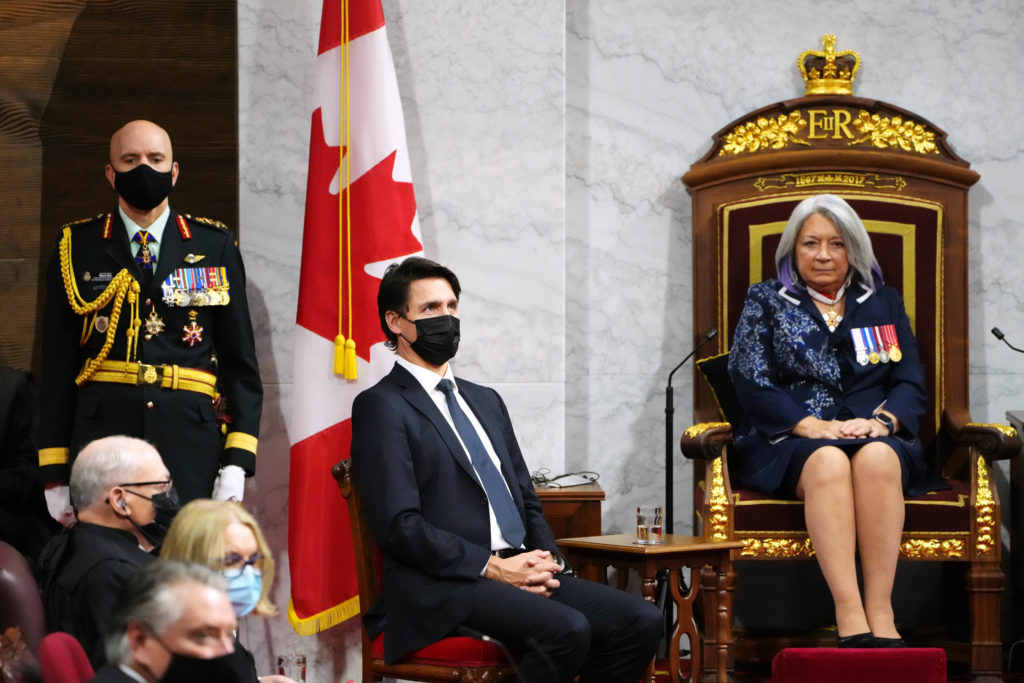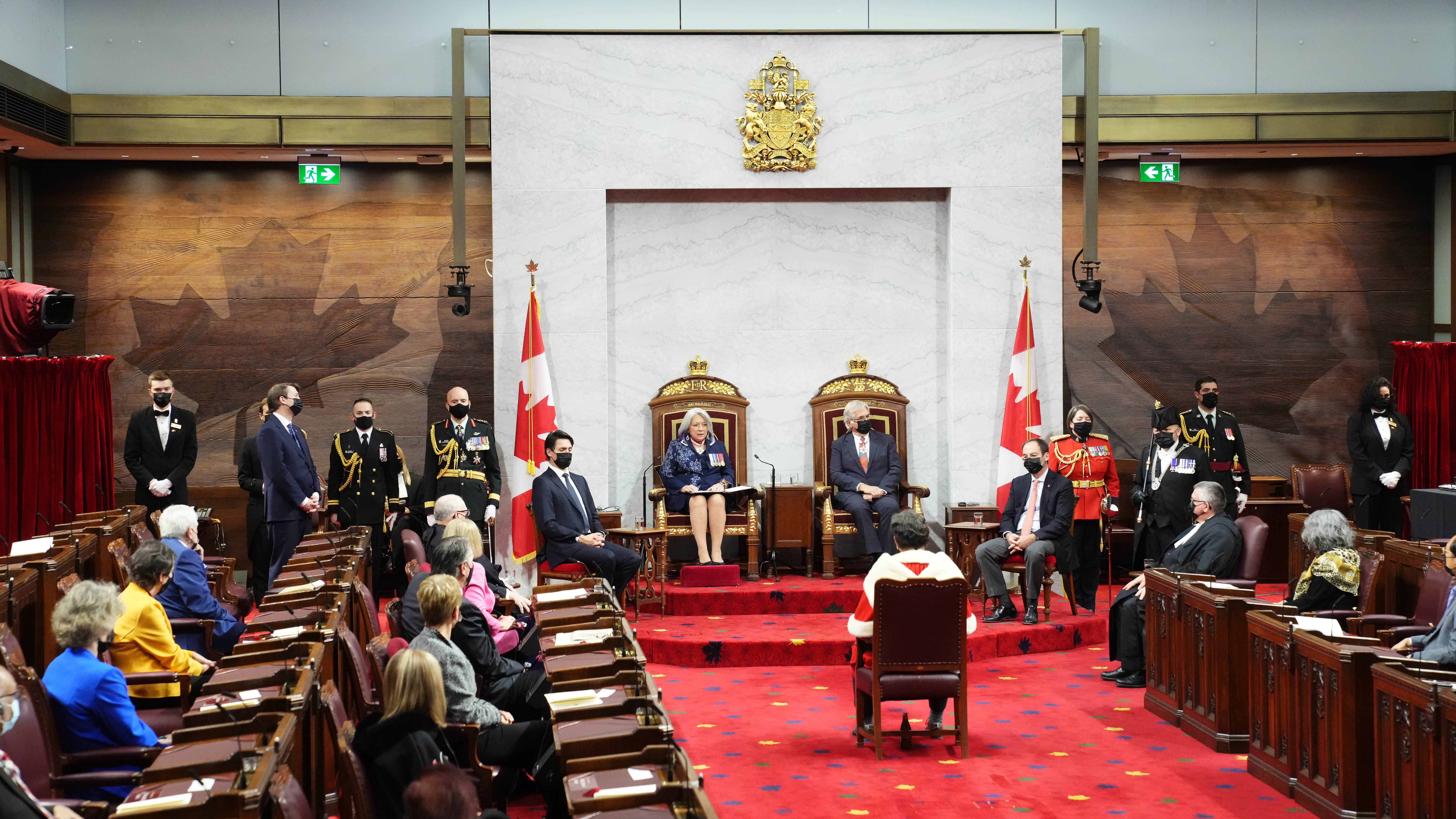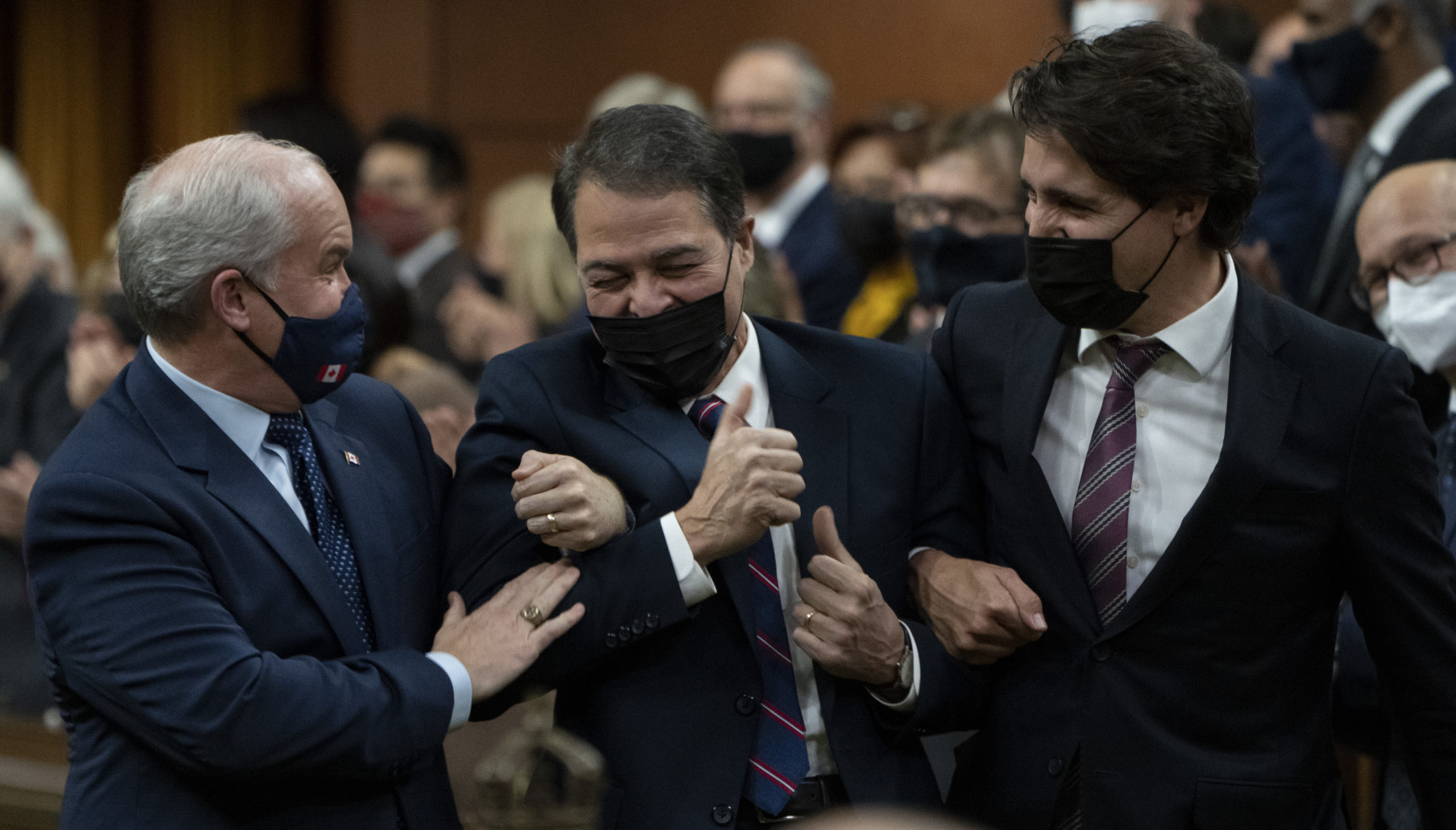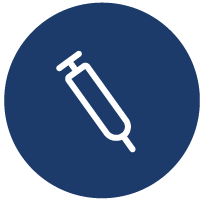On November 23, Governor General Mary Simon delivered the speech from the throne marking the official return of Parliament to Ottawa.
It is the first time in five months that members of Parliament have returned to the House of Commons, following the federal election held on September 20, 2021.

Historically, the throne speech places the political and program objectives of the government in context, laying out broadly the issues it intends to address in the upcoming Parliamentary session.
The language of the speech is typically general and directional, describing the broad objectives of policies and legislation rather than the specifics; the details come later.
Despite an election many in the media described as being about nothing, the Liberal platform released in September was laden with many highly detailed commitments, promising $78 billion in new spending. The throne speech builds on many of the key themes laid out during the election campaign, providing some indication as to the government’s priorities, though it stops short of spelling out the more specific initiatives outlined in the platform.
The speech focused on seven key themes: health, the economy, climate, public safety, diversity, reconciliation and foreign policy. There are reminders of the communitarian values throughout the speech, defining how Canadians live together, including much signaling on diversity and inclusion. Overall, this throne speech is more vague and aspirational than most, simply re-iterating key election promises on climate action, housing, child care and reconciliation with Indigenous peoples and providing very little new insight into the government’s agenda.
The speech itself was divided under the following headings:
A healthier today and tomorrow
While navigating Canada through and out of the COVID-19 pandemic clearly remains the government’s top priority, there were no new pandemic-specific commitments in the speech. The government does commit to “strengthen our healthcare system for all Canadians” and address gaps identified by the pandemic. It acknowledges that there is work to be done on access to care, on mental health and addictions, on long-term care and on data collection. That said, there is no mention of the specific commitments the Liberals made in the recent election campaign on health— to expand access to key health care professionals, create a new transfer to provinces and territories for mental health or review existing programs to ensure they address mental health challenges.

Growing a more resilient economy
Acknowledging the rising cost of living, the speech says, “Inflation is a challenge that countries around the world are facing. And while Canada’s economic performance is better than many of our partners, we must keep tackling the rising cost of living.” The distinction the speech makes between inflation and cost of living implicitly suggests the government will focus on the latter, and that its response is housing and child care. While these are important priorities, they will do little to relieve the immediate financial pressures for Canadians.
Addressing the next stages of pandemic management, the speech commits to ensure that “the Government is moving towards more targeted support, while prudently managing spending,” and that “no one will be left behind”. Legislation to scale back the federal government’s COVID-19 support measures and focus on hardest hit sectors is expected to be tabled in the House within days.
On housing, the government commits to the Housing Accelerator Fund, to “help families buy their first home sooner with a more flexible First- Time Home Buyer’s Incentive, a new Rent-to-Own program, and by reducing the closing costs for first-time buyers.”
In addition to continuing to negotiate child care agreements with the provinces and territories, the government commits to “increasing immigration levels,” which was already announced by the government.
Notably, there was no reference to microeconomic policy or levers. Unlike previous throne speeches and budgets, there was no reference at all to science, research, innovation or technology (emerging or traditional). Similarly, there was little reference to major traditional sectors like natural resources or manufacturing.
Bolder climate action
Prime Minister Trudeau has made it clear that action on climate change is a priority for the government. Just weeks ago, the Prime Minister and key members of his cabinet were in Glasgow, UK for the COP26 climate summit.
Our Earth is in danger. From a warming Arctic to the increasing devastation of natural disasters, our land and our people need help. We must move talk into action and adapt where we must. We cannot afford to wait.
Familiar initiatives announced during the fall election campaign and re-iterated in today’s speech include “moving to cap and cut oil and gas emissions, while accelerating our path to a 100 per cent net-zero electricity future”, ‘investing in public transit and mandating the sale of zero emissions vehicles”, “increasing the price on pollution” and creating the Canada Water Agency. The Speech also commits the government to stronger “action to prevent and prepare for floods, wildfires, droughts, coastline erosion, and other extreme weather worsened by climate change.” It also promised a National Adaptation Strategy something of increasing importance in that context. This is of particular interest as the province of British Columbia deals with the catastrophic impacts of storm flooding.
In the throne speech, the government also committed to Canada becoming a “leader in producing “the world’s cleanest steel, aluminium, building products, cars, and planes,” and to ensure that in creating the economy of the future, “no worker or region will be left behind.”
Fight harder for safer communities
The speech commits the government to strengthen gun control, by returning to the House its previous legislation to provide for a “mandatory buyback of banned assault-style weapons and move forward with any province or territory that wants to ban handguns.” The government will also introduce a 10-year National Action Plan on gender-based violence and update its Anti-Racism Strategy.
Stand up for diversity and inclusion
As promised in the election campaign, the government will reintroduce the ban on conversion therapy and reintroduce the proposed Act for the Substantive Equality of French and English and the Strengthening of the Official Languages Act. The government has also committed to reintroduce legislation to reform the Broadcasting Act and ensure web giants pay their fair share for the creation and promotion of Canadian content. The speech also mentions that the government will “continue to fight harmful content online” though it does not specifically commit to reintroducing its controversial online harms legislation.
Move faster on the path to reconciliation
As Canada’s first Indigenous Governor General, Mary Simon took the occasion to deliver the speech in English, French and Inuktitut, and underscore the importance of Indigenous and non-Indigenous peoples walking the path of reconciliation together. She also acknowledged the tragic discovery of unmarked graves of children who died in the residential school system in Canada, imploring Canadians to “turn the guilt we carry into action”.
Reconciliation is not a single act, nor does it have an end date. It is a lifelong journey of healing, respect and understanding.
In the face of widespread criticisms that the government is not moving quickly enough on Indigenous reconciliation, today’s speech commits the government to appoint a Special Interlocutor to further advance justice on residential schools. It also states that the government will ensure fair and equitable compensation for those harmed by the First Nations Child and Family Services program. The government will also “invest significantly in a distinctions-based mental health and wellness strategy, guided by Indigenous Peoples, survivors, and their families.”
As it relates to climate, the government also pledges to “strengthen its partnership with First Nations, Inuit, and Métis, to protect nature and respect their traditional knowledge”, particularly as it relates to protecting lands and oceans to address biodiversity loss.
Fight for a secure, just and equitable world
The foreign policy section of the speech was surprisingly light on substance. Of note, the government states that Canada will make “deliberate efforts to deepen partnerships in the Indo-Pacific and across the Arctic.” Deepening partnerships in the Indo-Pacific region appears to be a veiled reference to possible future collective action among the nations of the wider Asian community to counteract the challenges posed by Beijing. That said, the speech made no reference to the long overdue decision to ban Chinese conglomerate Huawei from involvement is building out Canada’s G-5 network.
The best thing we can do for the economy remains ending the pandemic for good. But as we do, we should rebuild an economy that works for everyone.

Election of the Speaker
The House of Commons opened on Monday, November 22 with the re-election of Anthony Rota as Speaker. He is the Liberal MP for Nipissing-Timiskaming and was Speaker in the last Parliament from 2019-2021.
One of the first orders of business for the new Speaker will be to address a Conservative challenge to the Board of Internal Economy decision which requires anyone entering the Parliamentary precinct to be fully vaccinated against COVID-19. MPs will also have to decide whether to resume hybrid sittings or to return to in-person proceedings in the House of Commons.
Debate on the speech from the throne
The Standing Orders of the House of Commons outline the procedures for debating the speech from the throne, including motions, amendments, sub-amendments and leaders’ speeches, after which an additional six sitting days may be allocated to the debate, followed by votes.
When the government has changed parties and the new government is meeting Parliament for the first time, the votes on the throne speech are critical, because this is the first opportunity for the new government to establish that it has the “confidence” of the House of Commons. In practical terms, establishing confidence means that the government is supported by a majority of the members of the House and is necessary for the government to proceed to govern.
In the current situation, the Liberal government is not a new government; it is continuing in office, and therefore does not have to establish confidence. For this reason, it is possible that the throne speech debate may be shortened and may not proceed to votes.
Challenges in managing House of Commons business
As the fall session begins, the House of Commons is scheduled to sit for four weeks, from November 22 to December 17, when it will break for the holidays. This provides only 20 days to begin to manage the crush of business coming out of the throne speech.
The government faces several constraints that will command the attention of the House and reduce its ability to focus exclusively on its priorities:
- The government needs to introduce and pass a COVID-19 supports legislative package to authorize and fund the new and amended income and business support pandemic measures announced on October 21, which are targeted on individuals and sectors, such as tourism, that have been hit hardest by the pandemic. This will likely be in the form of a single, omnibus bill.
- The House will need to consider and pass a supply bill to fund the government’s continuing operations, and also begin consideration of Budget Implementation Act #2 that is required to continue implementing measures announced in last April’s Budget 2021.
- If the minister of finance chooses, time will be required to present a Fall Economic Update
- The Government House Leader will likely need to provide as many as four Opposition Days to the opposition parties to debate motions on issues of their choosing. In addition, the Conservatives have requested an early emergency debate on the flooding situation in southern British Columbia, a request that will likely be granted by the Speaker.
In addition to dealing with these constraints on House business, the government will also be under pressure to keep its election promises to act “immediately” and/or “within the first hundred days” of government on a wide variety of issues, including:
- Introducing legislation to ensure that foreign web giants contribute financially to Canadian content and share revenues with Canadian news outlets;
- Introducing legislation to combat serious online harms;
- Providing for 10 days of paid sick leave for federally regulated workers;
- Strengthening the Official Languages Act;
- Reintroducing legislation to ban conversion therapy; and
- Completing the federal LGBTQ2 action plan.
The government has indicated that tabling legislation on the COVID-19 financial supports, paid sick leave for federally regulated employees, the ban on conversion therapy and banning protests outside of hospitals will be the four key focuses before the holiday break.
Initial Question Period themes
The throne speech marks the beginning of a new political season in Ottawa and the return of question period as the lens through which many high-profile political battles are fought.
Since it has been five months since the House rose for the summer recess, there is pent-up demand among the opposition parties to hold the government accountable on several policy fronts and to challenge new ministers:
- The impacts of the recent disastrous floods in southern British Columbia are a wild card for question period. The three opposition parties are likely to focus on disruptions in critical supply chains, specifically the restoration of critical shipments of western Canadian exports of grains, oilseeds and fertilizers to the Port of Vancouver to Asian markets and calls for more resiliency in infrastructure increasingly challenged by climate change. Concerns will also be expressed about faster action by the government to speed the intake to Canada of Afghans who helped our military during the conflict.
- The three opposition parties have also served notice they will again press the government to release documents related to the circumstances of the firing of two Chinese scientists at the National Microbiology Lab in Winnipeg two years ago. The government has so far refused to release the documents on national security grounds.
- The Conservatives can be expected to press the government about the impacts of inflation and the rising cost of living on Canadian consumers, which they believe has been caused by out-of-control federal spending to fight the pandemic. They will focus on rising grocery, gasoline and housing costs. With the recent release of the two Michaels, they will also argue that Canada should join its allies in taking a tougher stance on China and its “hostage diplomacy” and human rights violations, plus the need for an early decision banning Huawei from involvement in building 5-G technology in Canada.
- The Bloc Québécois has indicated that their focus will be on health care, climate change, the political weight of Quebec in Ottawa (including the controversial redistribution proposal to reduce Quebec’s seats in the House by one), protecting the French language and what they see as unfair changes to seniors’ pensions.
- The New Democratic Party (NDP) will likely lead with the impacts of the government’s October 21 announcement on COVID-19 support programs, which gave only two days’ notice to the expiry of several pandemic income support programs and the hardships this caused. The NDP will also likely press the government to move more quickly towards universal pharmacare and dental care and the banning of private sector ownership of long-term care facilities. With a minority government, the NDP are the most likely dance partner for the Liberals in passing legislation in the weeks and months ahead.
Formation of House committees
Now that Parliament has resumed sitting, both the House of Commons and Senate will each form standing committees. These are important as they play key roles in the consideration of government legislation by MPs and senators and serve as principal points of contact for stakeholder groups wishing to participate in the legislative process.
In the House of Commons, committee membership is determined according to a formula that reflects the proportion of each party’s number of seats in the House. The committee formation process generally takes about a month to be complete, so we may or not know the membership and chairs of committees until the House resumes sitting in January after its end-of-year break.
The annual budget cycle
The annual federal budget is the most important yearly activity of the government. Preparing a budget is normally a long and complex process and takes place over much of the calendar year. In the current situation, because half of the 12-month budget cycle is already gone, the process leading to Budget 2022 will be truncated and significantly shortened.
Normally, the general directions for next year’s budget are set at a Cabinet retreat held after the House rises for summer in June. This year, because of the intervening election, these instructions will be delivered via meetings between the prime minister and minister of finance.
The normal budget process calls for ministers to advise Finance Canada of their respective top priorities for funding in the upcoming budget each fall in October or November; this advice will need to be prepared and sent quickly.
Both the finance department and the House of Commons finance committee typically undertake pre-budget consultation processes through which stakeholders are able to make submissions for consideration. These processes should be underway by early in the new year.
Ministerial mandate letters
Work is proceeding on the preparation of the ministerial mandate letters. It is expected they will be made public in the coming weeks. The composition of cabinet committees has also yet to be released.






